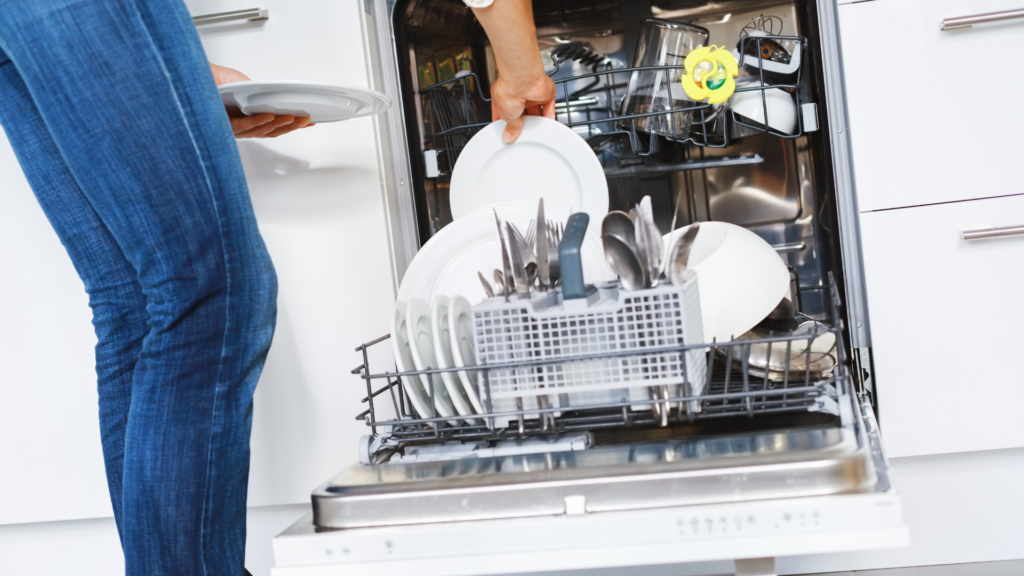How 25 Simple Tips Transformed My Homemaker Evening Routine
In traditional homemaking, the evening routine is almost sacred. It’s the time of day when the hustle and bustle begin to wind down, and the focus shifts towards preparing the home for a peaceful night. This routine is not just about tidying up; it’s a blend of old-school practices and heartwarming rituals that bring comfort and a sense of order.
From setting the dinner table with care to dimming the lights and ensuring everything is in its place for the next day, every step is a testament to the love and care a homemaker pours into their sanctuary.

Dinner Preparation
Planning and preparing dinner doesn’t have to be a solo mission or a daily grind. Turn it into an enjoyable experience with some foresight and family teamwork. Here are some tips to get you started:
- Weekly Meal Planning: Spend a bit of time each week planning meals. This doesn’t just help with grocery shopping; it also takes the daily “what’s for dinner?” panic off your plate. Involve the family in the planning process to include meals everyone looks forward to.
- Prep in Advance: Whenever possible, prep ingredients ahead of time. Shopping for vegetables, marinating proteins, or even pre-assembling meals can save time during busy evenings. It’s also a great way to involve the family – younger members can help with washing or simple chopping, while older kids can manage more complex tasks.
- Theme Nights: Consider theme nights like Taco Tuesday or Soup Sunday to simplify planning. These can be fun for the family to prepare together and offer a delightful variety without the stress of coming up with new ideas weekly.
- Cook Together: Make dinner preparation a family affair. Assign tasks based on age and skill level. Not only does this teach valuable cooking skills, but it also creates cherished memories and a time for bonding.
- Batch Cooking: On days when you have more time, consider preparing meals in bulk to freeze for later. It can be a lifesaver on those nights when cooking is the last thing you want to do. Plus, it’s an opportunity for family members to learn about portioning, food safety, and storage.

Family Time
Once the dishes are cleared and the kitchen is tidied up, family time becomes the focal point of the evening. This is the perfect opportunity to engage in activities that bring joy and foster bonding and communication within the family. Here are some suggestions to make post-dinner hours memorable:
- Family Game Night: Break out the board or card games for an evening filled with laughter and friendly competition. Games are a fantastic way to encourage teamwork, strategic thinking, and patience.
- Evening Walks: A stroll around the neighborhood or a local park can help digest dinner and offer everyone a chance to unwind and connect with nature. It’s also a great time for casual conversations and sharing thoughts about the day.
- Story Time: For families with younger children, storytime can be a magical experience. Reading stories together helps develop a child’s literacy skills and sparks imagination and creativity. For older children and adults, sharing personal stories or discussing a book everyone is reading can be equally enriching.
- Creative Projects: Engage in a family art project, such as painting, crafting, or building something together. This encourages creativity, offers a sense of accomplishment, and can be a beautiful way to display family memories in the home.
- Movie or Series Night: Pick a movie or a series episode to watch together. Make it extra special by preparing popcorn and dimming the lights to create a theater experience at home. Discussing the movie or show afterward can provide insights into each other’s perspectives and preferences.

Kitchen Cleanup
Once the last bite of dinner is enjoyed and family time winds down, tackling the kitchen cleanup becomes the next item on the evening agenda. Streamlining this process doesn’t just cut down on the time and effort involved; it also turns a chore into a more manageable and enjoyable activity through teamwork. Here are some strategies to make kitchen cleanup efficient and hassle-free:
- Everyone Contributes: Assign specific tasks to family members, ensuring everyone participates in the cleanup. Divide tasks by age-appropriateness—little ones can help by putting non-breakable items away, while older family members tackle washing dishes or wiping down surfaces.
- Clean as You Cook: A golden rule for minimizing post-dinner cleanup is cleaning as you go. Washing pots, utensils, and cutting boards while dinner simmers can significantly reduce the load once the meal is served.
- Use Fewer Pots and Pans: Opt for recipes that require fewer pots and pans. One-pot meals or sheet-pan dinners are delicious and require less washing up afterward.
- Pre-dinner Setup: First, fill the sink with hot, soapy water. This will soak used utensils and dishes, making them easier to clean later.
- Designate a Cleaning Station: Having a specific area for dirty dishes helps keep the kitchen organized and makes it easier for whoever is washing dishes to know what needs to be cleaned.
- Make It Fun: Turn cleanup time into a fun part of your evening. Play music, challenge each other to see who can clean their designated area the fastest, or make cleaning a team competition with a small reward for the winners.
- Routine Inspection: Before declaring the kitchen closed for the night, do a quick walk-through to ensure everything is cleaned, wiped down, and put away. This final inspection avoids waking up to unwelcome surprises in the morning.

Prepping for the Next Day
Preparing the night before is essential to ensure a smooth and stress-free morning. Here’s a helpful checklist for the next day’s tasks that can lead to a more organized start:
- Outfits Ready: Decide and lay out everyone’s clothes for the next day. This includes uniforms, work attire, and any necessary accessories, ensuring mornings are free from the frantic search for things to wear.
- Pack Bags: Whether it’s school backpacks, work bags, or gym kits, pack them the night before. Check for any special items needed for the next day, like sports gear or extra books.
- Breakfast Plan: Set out non-perishable items for breakfast on the counter and prep ingredients for a quick meal. Knowing what’s for breakfast can speed up the morning routine and ensure everyone starts the day well-fed.
- To-Do Lists: Write down a to-do list for the next day. This might include tasks, appointments, and any reminders needed to keep the day on track.
- Charge Devices: Ensure all electronic devices are charging overnight so they’re ready for use the next day without delay.
- Lunch Prep: If you’re taking lunch, prepare as much as possible the night before. This can be packing leftovers, assembling sandwiches, or portioning snacks.
- Essentials by the Door: Place keys, wallets, purses, and any other daily essentials in a designated spot near the door. This will save time and prevent the last-minute rush to find these items.

Bedtime Rituals
Establishing a calming bedtime routine is pivotal for both adults and children. It helps them wind down from the day’s activities and transition smoothly into a restful night’s sleep. A consistent bedtime ritual aids in signaling the body and mind that it’s time to rest, improving overall sleep quality and duration.
For adults, this might include reading, meditating, or taking a warm bath to relax the body and ease the mind. Limiting screen time at least an hour before bed can also help reduce blue light exposure, which disrupts the body’s natural sleep-wake cycle.
For children, a bedtime routine can consist of a bath followed by a story or a quiet time with a parent to provide a sense of security and comfort. Gentle lullabies or soft, calming music can also help children drift off to sleep more easily. Both adults and children need to keep consistent sleep and wake times, even on weekends, to maintain the body’s internal clock and enhance sleep quality over time.
Final Thoughts on Traditional Evening Routines
Incorporating traditional evening routines into our daily lives fosters a sense of stability, fosters family bonding, and enhances individual well-being.
By ending the day with calming bedtime rituals, we improve our sleep quality and prepare our minds and bodies for the next day’s challenges. In an age where digital distractions are rampant, returning to these traditional practices can be a refreshing change that brings about a healthier, more connected, and more fulfilling lifestyle.

